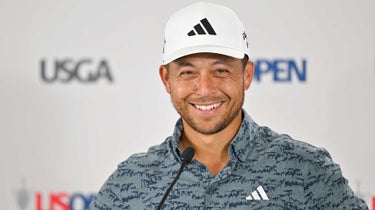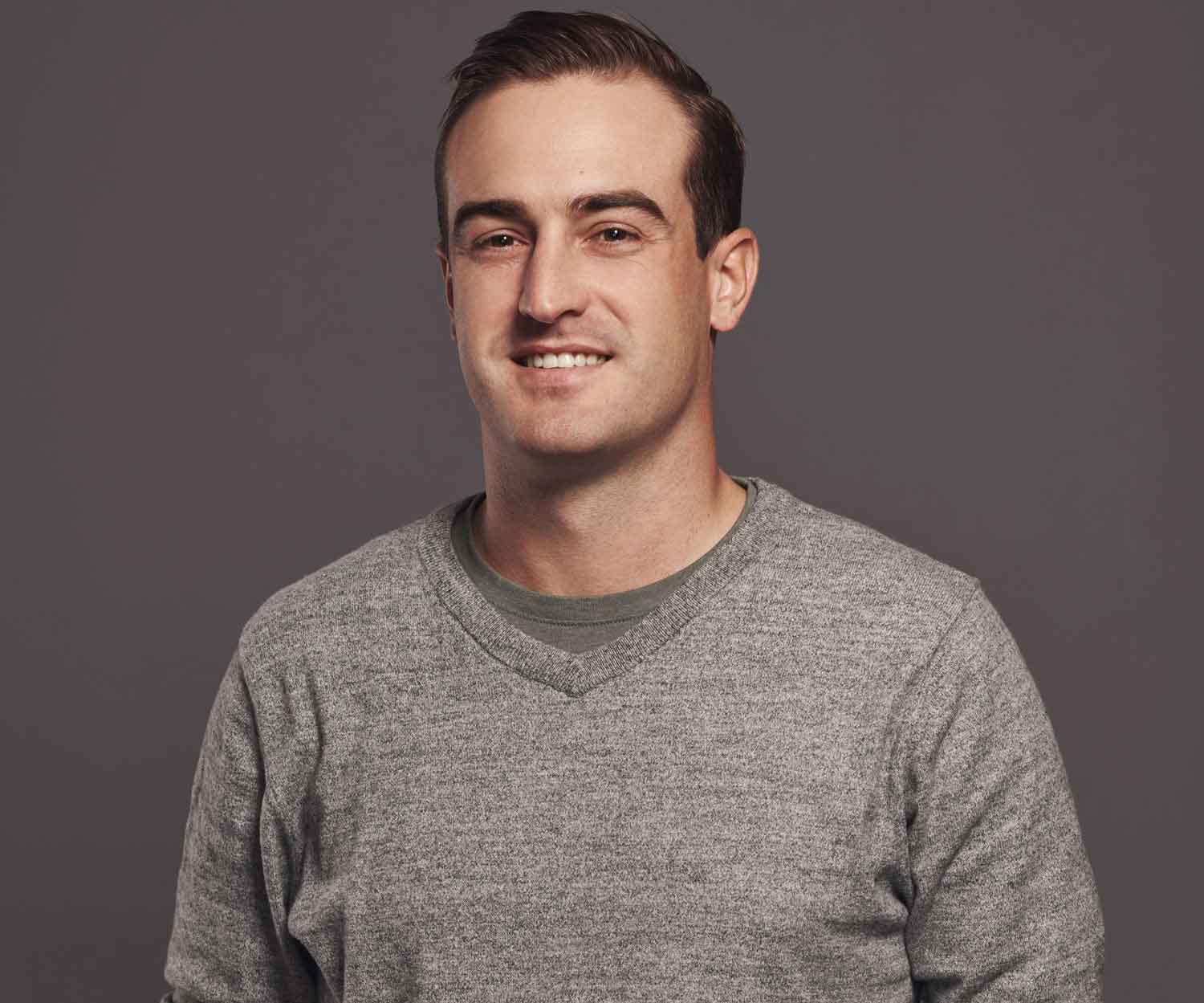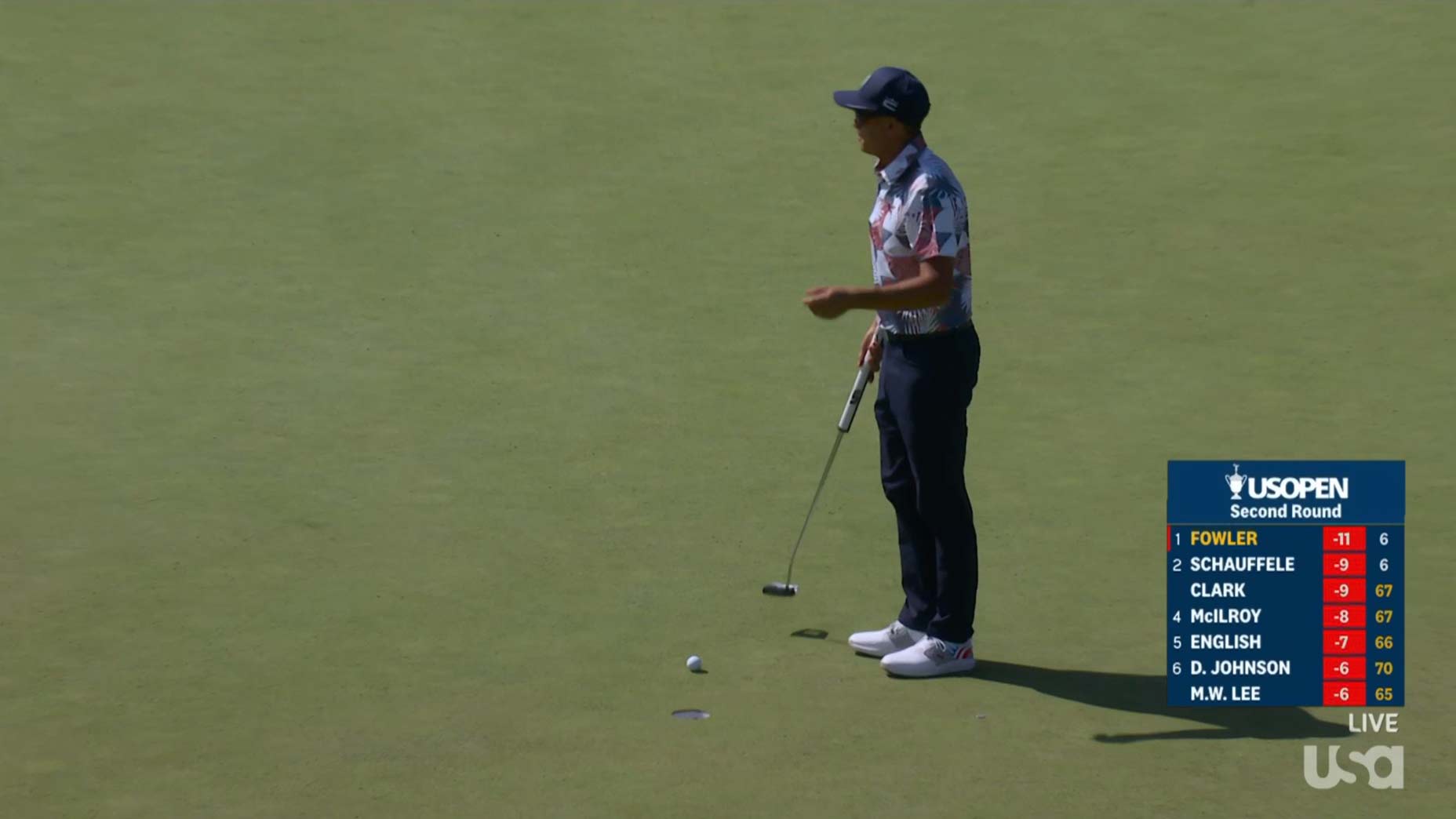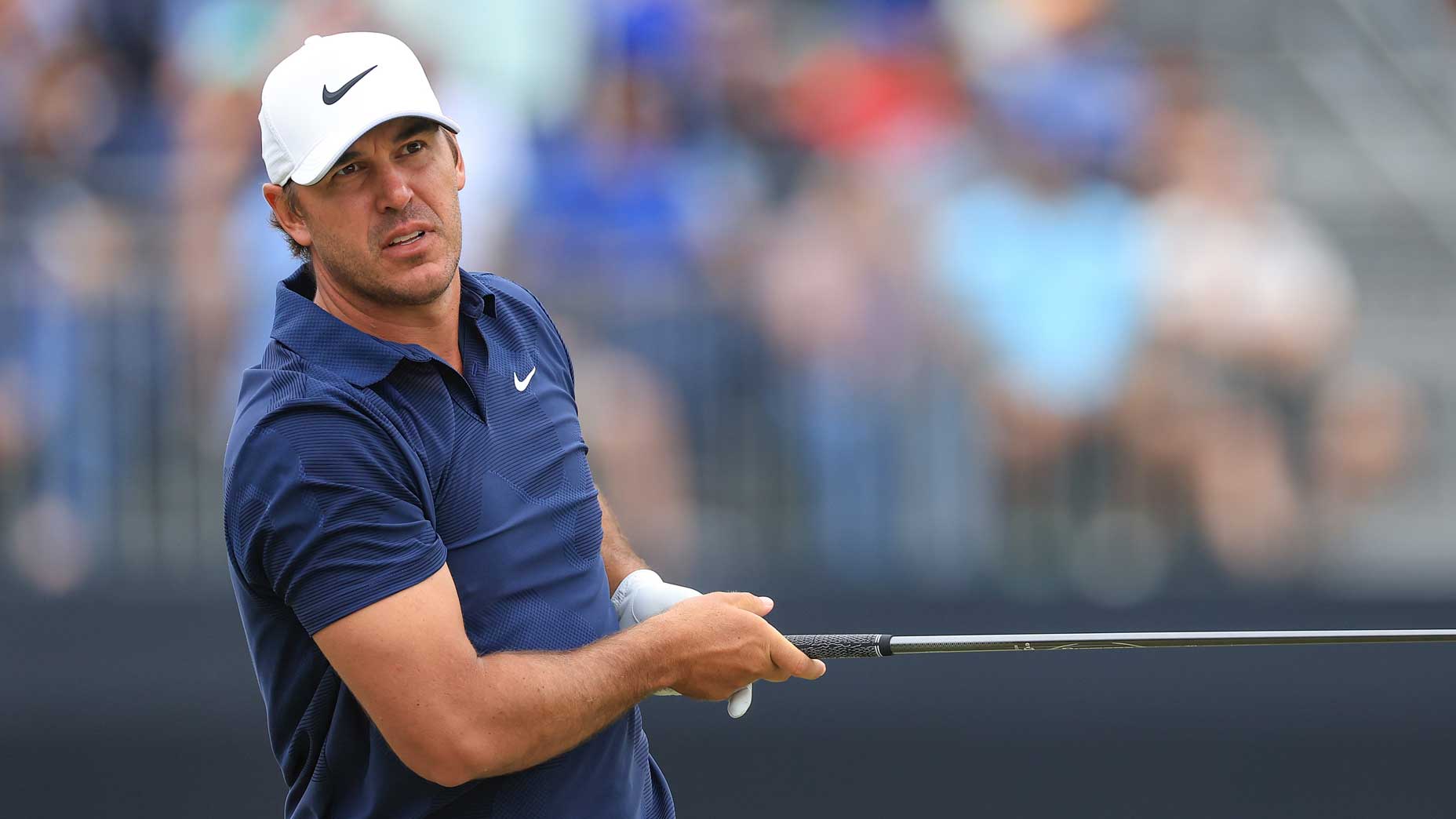
Brooks Koepka sits at even par after 36 holes of the U.S. Open.
Getty Images
LOS ANGELES — If it feels like this U.S. Open lacks a bit of pop in the early going, perhaps that’s because the opinions are at an all-time low. Players have more or less clammed up.
The instability of pro golf has everyone on edge about sharing their inner thoughts. So much remains unknown that they’d all rather stay quiet. But fellas, this is the U.S. Open, where course design and strategy and firmness and rough length and bunker sand create the ultimate platform for sharing one’s thoughts. Which side would win over — the lean toward silence or the annual tradition of analyzing a major championship setup?
The former held strong over the first 18 holes of this championship but finally, after the second round, we heard from one player who isn’t convinced about Los Angeles Country Club: Brooks Koepka.
The 5-time major winner is in the house at even par after 36 holes. Normally, that’s right where he wants to be. When asked what a U.S. Open setup should be, that was his immediate answer: around par. But we are nowhere near around par. When Koepka spoke, the 18-hole leaders teed off behind him, starting their second rounds at eight under.
“I’m not a huge fan of this place,” Koepka said. He wasn’t stern or upset. More calculated than anything. “I just think that there’s a — I’m not a huge fan of blind tee shots, and then I think there’s just some spots that no matter what you hit, the ball just ends up in the same spot.
“I think it would be more fun to play on just like a regular round than it would be a U.S. Open. I mean, there’s, what, two [eight-under rounds] yesterday. That doesn’t happen.”
He’s not wrong. Rickie Fowler and Xander Schauffele’s matching 62s on Thursday were the first and second 62s in U.S. Open history. He’s not wrong about the collection areas either. A few holes at LACC have decidedly blind tee shots, and a few others have rather defined collection zones.
One thing the setup has going for it is that no one in the field, Koepka included, seems to be calling it an unfair test. That adjective gets tossed around at major championships every year. The course might just not fit his eye, but it’s definitely not “tricked up,” he said.
The only place where it could get more difficult would be on the greens, adding, “but I don’t know if you can. Then it might be interesting, that’s for sure.”
He might be right about that, too. In response to lower scores on a shorter setup Thursday, all of Friday’s tees were moved back, extending the layout to a maxed-out length of 7,423 yards.
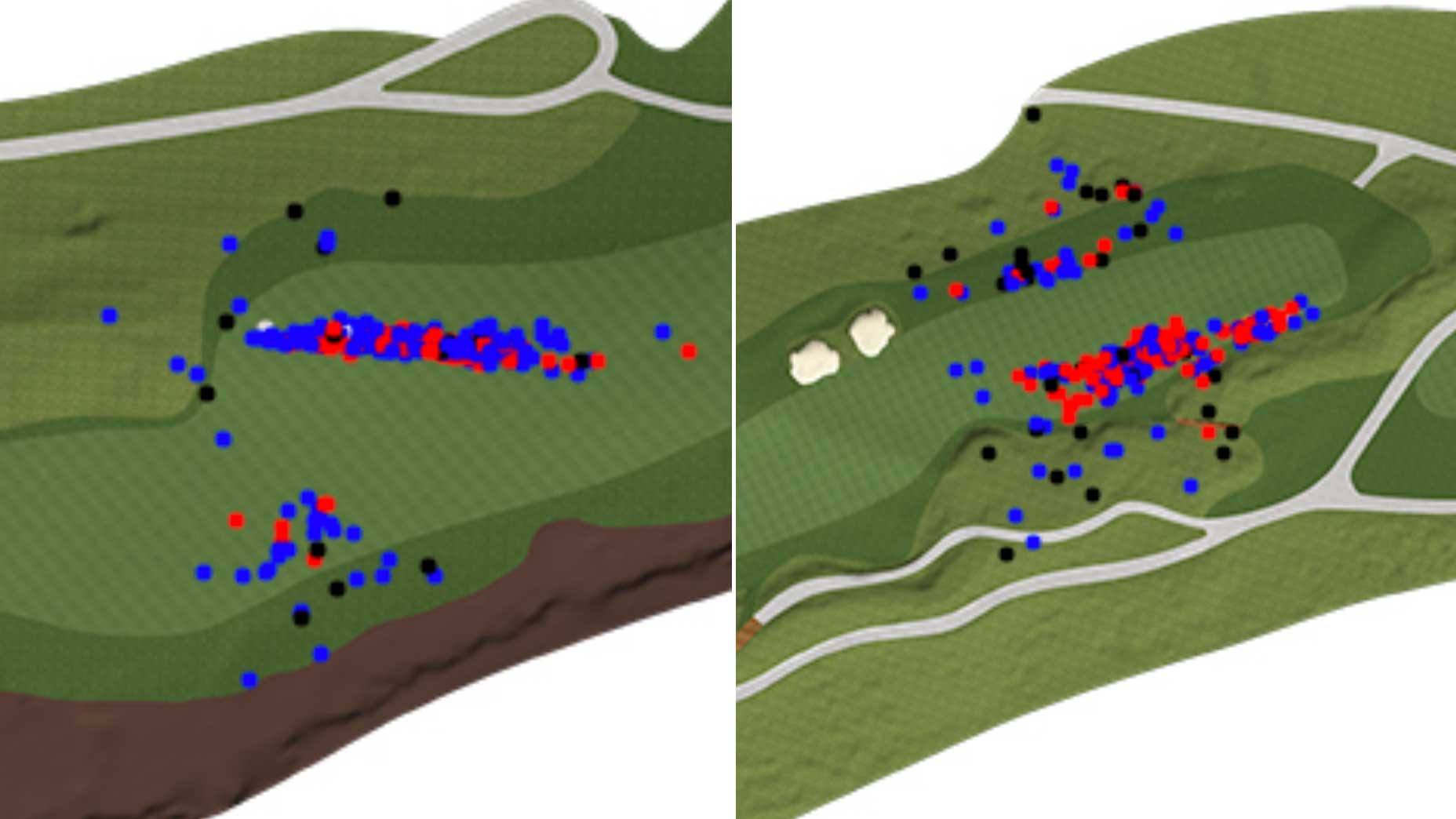
ShotLink
Despite all that, the show goes on. Koepka admitted he’s won tournaments on courses he hasn’t particularly loved in the past. And as for his surprise at the low scores, well, he’s going to find plenty of company, starting with one of his playing partners.
“Yes, the course has played maybe a little easier than everyone thought it would,” Rory McIlroy said after reaching eight under himself. “But wouldn’t be surprised on Saturday, Sunday to see it bite back, which — going back to your question — I feel is what a U.S. Open is all about. It should be tough. It should be just as much of a mental grind out there as a physical one.”


